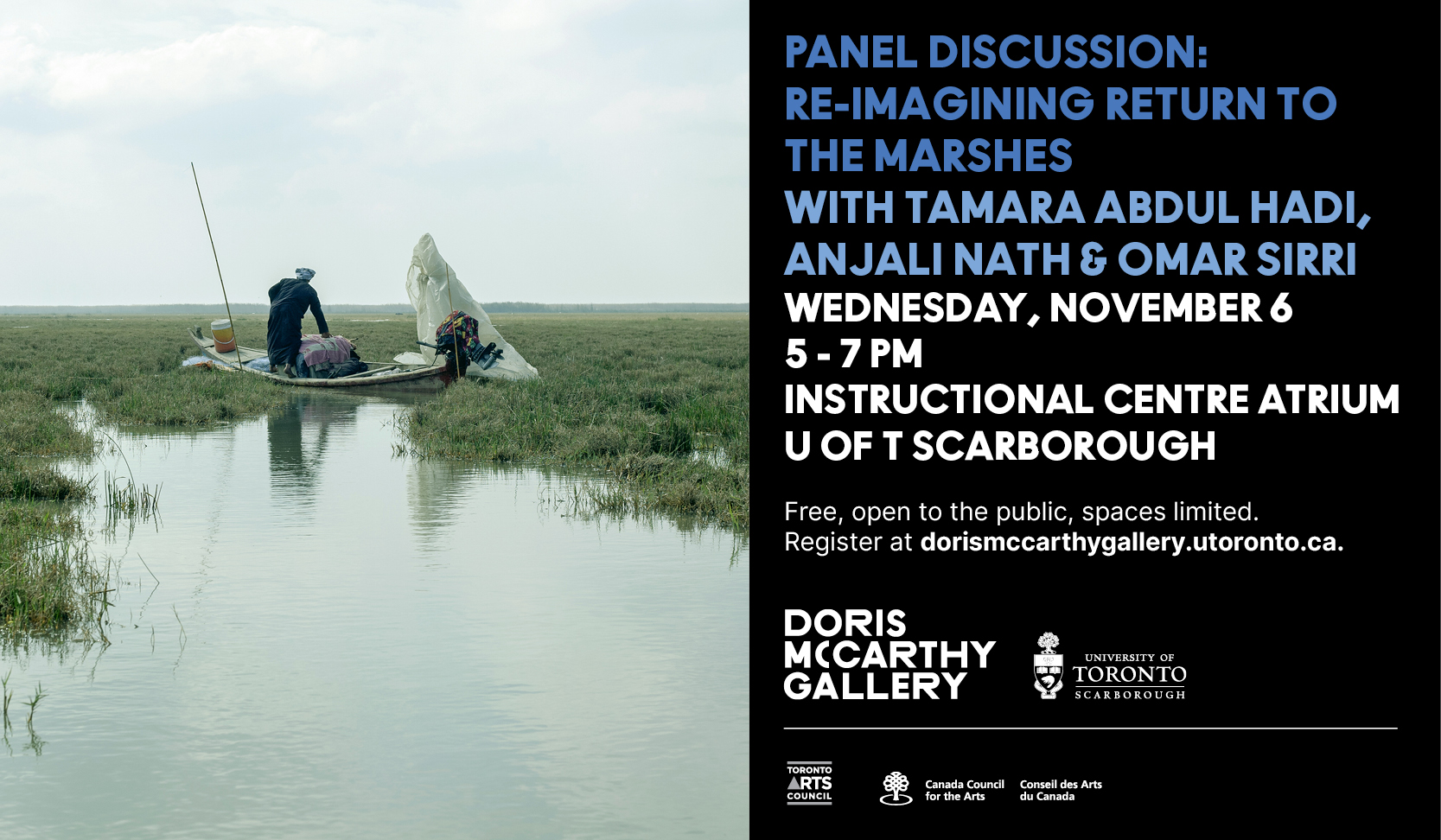Re-Imagining Return to the Marshes
When and Where
Description
Tamara Abdul Hadi, Anjali Nath, and Omar Sirri provide insight into Abdul Hadi’s ongoing project Re-Imagining Return to the Marshes, the development of her exhibition in the IC Vitrines, and her work as Jackman Humanities Institute Artist in Residence. The program will feature a special guest presentation by Mustafa Hashem, an Ahwari activist from the Maysan province in Iraq.
This program is free and will be delivered in-person in the Instructional Centre Atrium at the University of Toronto Scarborough. Space is limited, registration is required. If you have accommodation needs, please let us know through the registration form or by contacting dmg.utsc@utoronto.ca. The Instructional Centre is wheelchair accessible, and this is a seated program. Refreshments will be served.
Tamara Abdul Hadi is an Iraqi photographer whose work is concerned with the historic and contemporary representation of her own culture, in its diversity. Her photography and commentary focus on the dispossessed and marginalized, the underside of Orientalist representations, the underground of settler societies, and the changing social and environmental landscapes of the Middle East.
Anjali Nath is Assistant Professor in the Institute of Communication, Culture, Information, and Technology at the University of Toronto Mississauga. Her work focuses on the visual culture of American militarism, with a focus on document redaction, transparency, and the archives of state violence. Her current book project, A Thousand Paper Cuts: US Empire and the Bureaucratic Life of War, is a critical reckoning with the racial and imperial work of paper as mobilized in the service of American militarism.
Omar Sirri is a Postdoctoral Fellow in the Institute of Islamic Studies at the University of Toronto. His current book project, tentatively titled Circulating the State: An Ethnography of Checkpoints in Contemporary Baghdad, explores how infrastructures of security in Iraq's capital city work to produce the state, even amidst persistent security breakdowns and failures.



